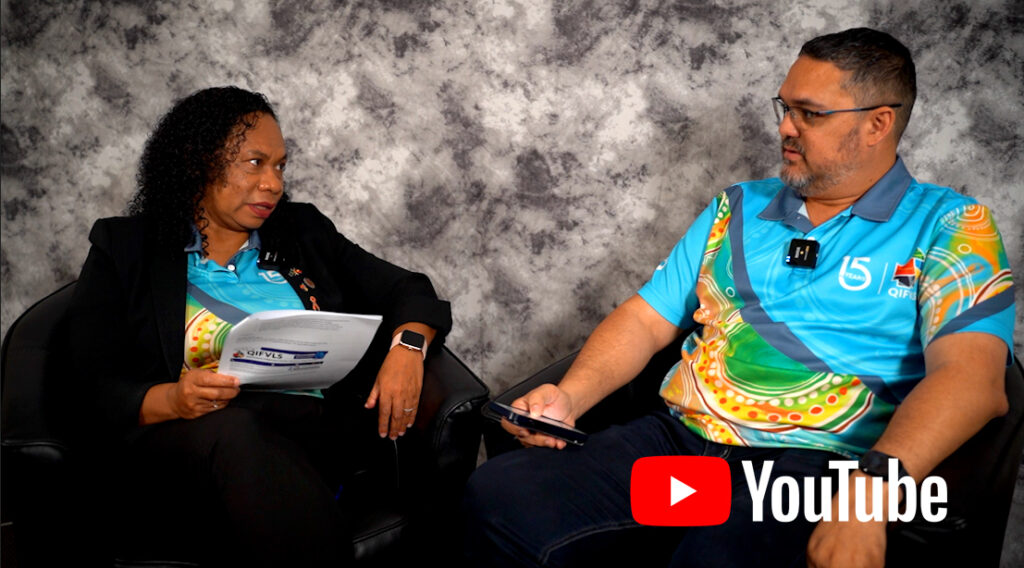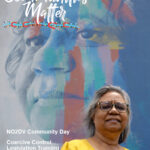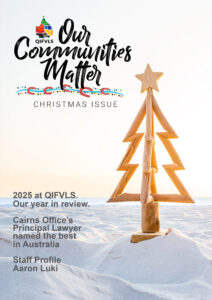


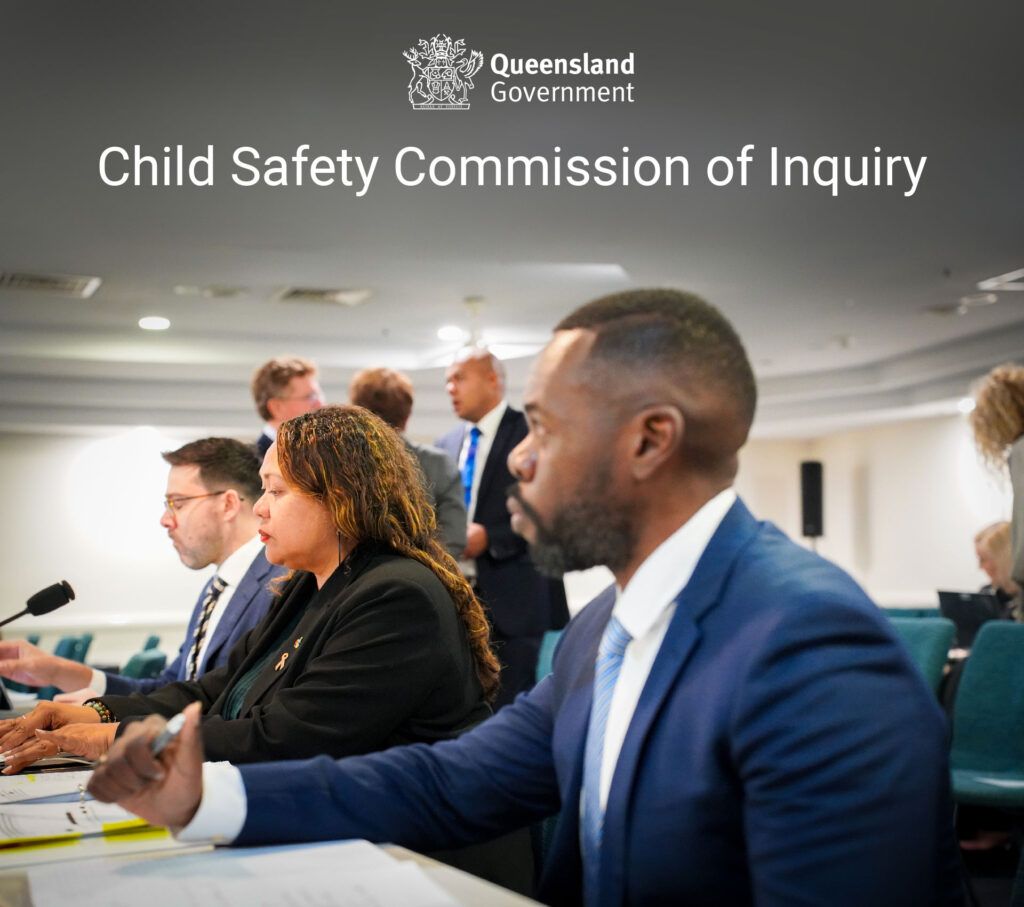
The Child Safety Commission of Inquiry held the first of its public hearings over three weeks in Cairns, starting on Monday 8th September. The Commission of Inquiry (Commission) was established by the Queensland Government to investigate reported systemic failures within the Department of Families, Seniors, Disability Services and Child Safety (the Department) in relation to the placement of children into state care. The Commission is also tasked, under its Terms of Reference, with inquiring into reforms of the residential care system, fixing a broken system, keeping children safe, how to achieve safer communities and to review Queensland legislation about the protection of children.
The choice of Cairns for the regional hearings is reflective of the high percentage of Aboriginal and Torres Strait Islander people who live in Far North Queensland. The 2021 Census figures highlight that 40% of Aboriginal and Torres Strait Islander Queenslanders live in outer regional to remote areas compared to 14.5% of non‑Indigenous Queenslanders. Distance and a widely dispersed population are recognised as factors which shape child safety outcomes in this region.
For the Cairns public hearing, QIFVLS provided a submission on the List of Issues to be explored and gave evidence. QIFVLS Chief Executive Officer Wynetta Dewis welcomed the decision to hold the first of the hearings in Cairns, commenting: “It will bring to light some of the issues that are really quite prevalent within Far North Queensland, and can be different to what will be seen when they sit in other regions like Brisbane, our metropolitan capital, for example. We’re very grateful that the first hearing has occurred here”.
Given the grossly disproportionate representation of Aboriginal and Torres Strait Islander children placed in out-of-home care, the presence of QIFVLS as a party to proceedings at the Inquiry will provide a relevant and insightful perspective ensuring that issues that impact Aboriginal and Torres Strait Islander families and communities are brought to light .
QIFVLS was represented before the Commission by Counsel, Mr Joshua Creamer – an Indigenous barrister and former Path to Treaty Commissioner – instructed by Executive Director Legal Thelma Schwartz and Senior Policy Officer Kulumba Kiyingi in their capacity as instructing solicitors.
During the first week of the Inquiry the Commission primarily heard evidence about the models of care utilised in the system, including residential care (resi care), foster care and kinship care. Thelma noted, “We have heard devastating stories of the interactions between those who give their time as foster or kinship carers and the Department. Many witnesses have spoken about how the Department should proactively work with foster carers and kinship carers but also supporting, the Aboriginal and Torres Strait Islander Child Placement Principle and the ongoing connection of a child to kin, country and community”.
Week two of the Cairns hearing focused on evidence from peak bodies including Aboriginal and Torres Strait Islander community-controlled organisations as well as Aboriginal and Torres Strait Islander people who gave evidence about their experiences with children being placed into out-of-home care, including infants being removed from birthing suites.
The community-controlled organisations that gave evidence included two Cairns-based First Nations health organisations, Wuchopperen and Mukai Rosie. Representatives from Mura Kosker from Thursday Island also travelled to be in Cairns to speak to their experiences in the Torres Straits. We also heard of the experiences through the lens of a community justice group from Julie Go-Sam, the Co-ordinator of the Tablelands Community Justice Group, located in the Atherton Tablelands.
Representatives from each of these organisations spoke consistently about the need for early engagement in cases flagged by the Department. They cited the repeated lack of communication and consultation by the Department as being potentially harmful to both the child’s longer term-wellbeing and to that of the child’s extended family.
Tom Allsop from PeakCare also gave evidence, speaking about the harmful effects of the current residential care model and stressing the importance of relying on Aboriginal and Torres Strait Islander organisations to lead, advise and provide services due to their unique expertise. Tom Allsop’s evidence was not fully completed in Cairns and will continue in Brisbane on a date and time to be advised by the Commission.
“We’re hopeful that the evidence that’s put forward in that week highlights some of the systemic issues that we see, hear and experience, particularly that which is localised here in Far North Queensland impacting our children, our families and our communities” Thelma said.
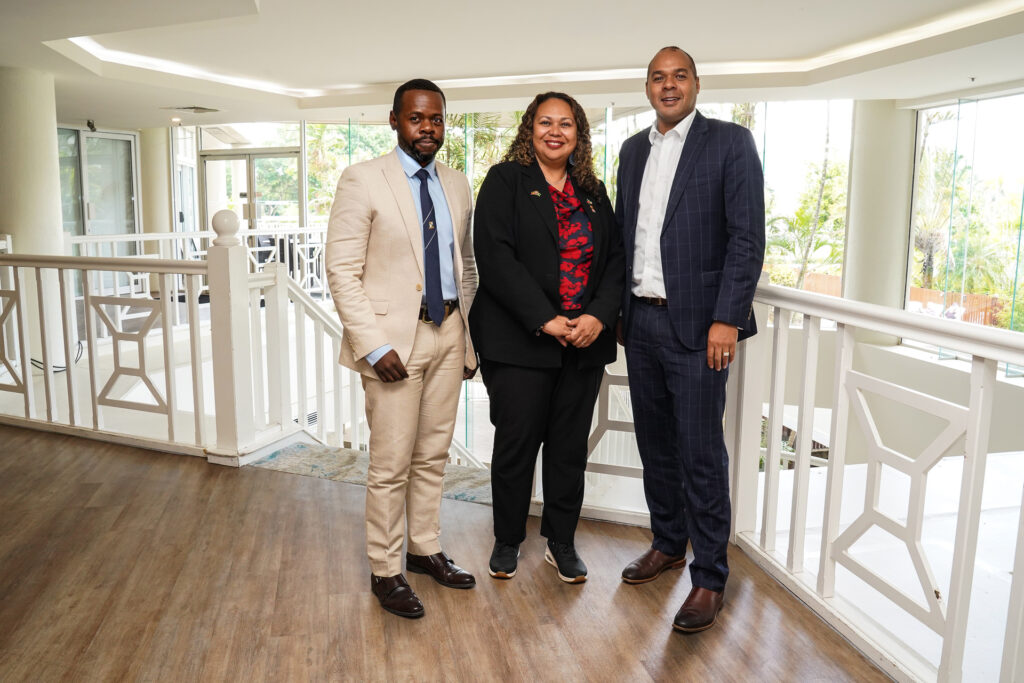
Week three began with the Commissioner hearing from young people who had experienced out-of-home care, either in residential care (resi care), foster care or kinship care. This included the Commissioner meeting with young people aged from their mid-teens to early twenties for a closed, private session.
Thelma gave evidence to the Commission that week offering key insights from her experience working with Aboriginal and Torres Strait Islander peoples, and especially what we see here in our QIFVLS practice, noting that over one third of QIFVLS’ legal practice new case file load relates to child protection matters.
Many of the issues affecting QIFVLS’ clients were raised – the effects of chronic CSO staff turnover; poor communication from Child Safety as experienced by our clients; the retraumatising effects of the Child Protection Litigation model; and birth‑suite removals, as powerfully described by Thelma.
Commenting on her evidence, Thelma said, “I tried to impress on the Commission that there are a number of socio-economic pressures that will drive a family and young people into contact with these various government systems. You can’t look at the totality of the child protection system in silos separate from the youth justice system and the adult criminal justice system. There is an intrinsic link across these systems with domestic and family violence.
“What we see at QIFVLS is the prevalence of domestic and family violence and how this intersects with being used as one of the grounds for a removal of a child by the Department. Additional grounds for removal of a child we see in practice relate to a parent being either a current child or former child subject to a Child Protection Order, residential overcrowding or a lack of stable housing and drug/alcohol misuse”.
Week three also saw evidence given by Queensland Government Departments, including from the Department of Health . The Department’s evidence included hearing from a number of Child Safety cultural practice advisors, who gave their evidence in a closed session.
Brigitte Svendsen – a Senior Team Leader and Child Safety Officer also gave evidence. However, her evidence was not fully completed in Cairns and will be finalised in Brisbane on a date and time to be advised by the Commission. The Director of Child Protection Litigation, whose main purpose is to apply for child protection orders on behalf of the State of Queensland and to conduct the resulting legal proceeding through the Children’s Court of Queensland did not appear before the Inquiry, an absence noted by all parties and the Commission.
Kulumba Kiyingi, QIFVLS’ Senior Policy Oficer and an instructing solicitor to barrister Josh Creamer said, “Josh led our case with clarity and strategy. He ensured that the Commission appreciated the significance of cultural respect.
We reiterated that reforms and recommendations must be regionally tailored, led and co-designed with local communities.
Although time was against us, we are grateful to have placed the voices of our clients on the record for the Inquiry’s knowledge”.
The Child Safety Commission of Inquiry will continue its hearings in Brisbane.

Cairns Office
The Child Protection Week – Southside Celebration, hosted by Hambledon House Community Centre, was a fun-filled, family-friendly afternoon that brought the community together to celebrate connection and raise awareness about the importance of keeping kids safe. The QIFVLS team enjoyed spending time with families, helping children create their own badges, handing out cookies, chilled water and QIFVLS goodies. The celebration had something for everyone, with jumping castles, face painting, roving entertainment, a sausage sizzle, food vans, and a wide range of service provider stalls. On stage, the program was packed with incredible performances from musicians, dancers, and entertainers, including the much-anticipated return of Drum ∞ Mugendai with their powerful Japanese Taiko drumming. It was a fantastic afternoon bringing families together to celebrate community, connection, and the importance of child protection.
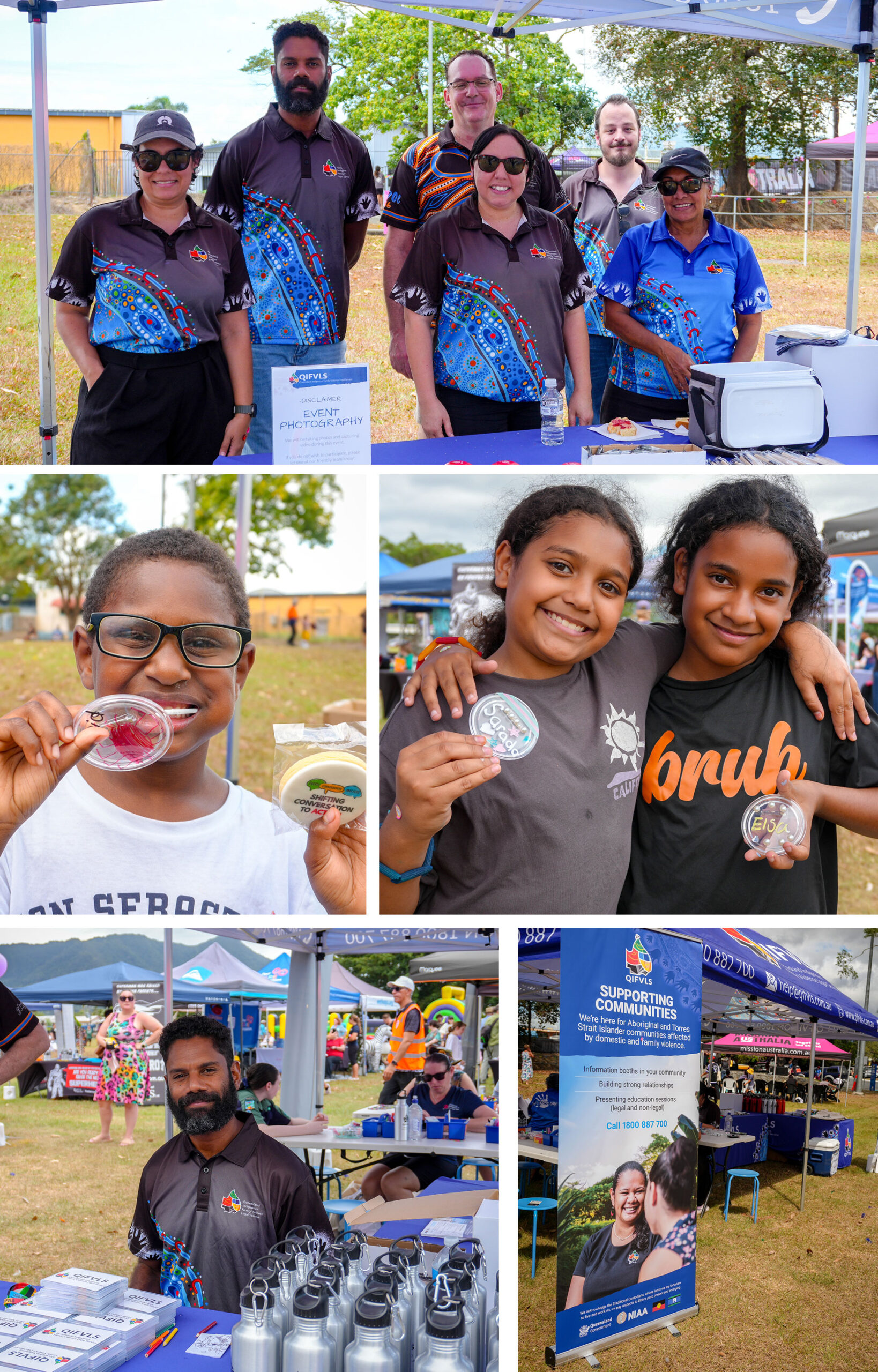
Brisbane Office
The Brisbane office’s Child Protection Week event was held at the Early Years Kindergarten Centre in Acacia Ridge. It was a fun day out for the children and their families, staff and other stallholders, set in a peaceful, natural environment. Entertainment was provided by a local First Nations woman who performed an interactive Nana Magic Show for the children. Refreshments including water, juice pops and fruits were on hand, and goody bags were also given out. It was a great opportunity for the QIFVLS team to spread awareness about our services and engage with the local community. The QIFVLS team even participated in dancing from the sidelines to songs like Baby Shark.
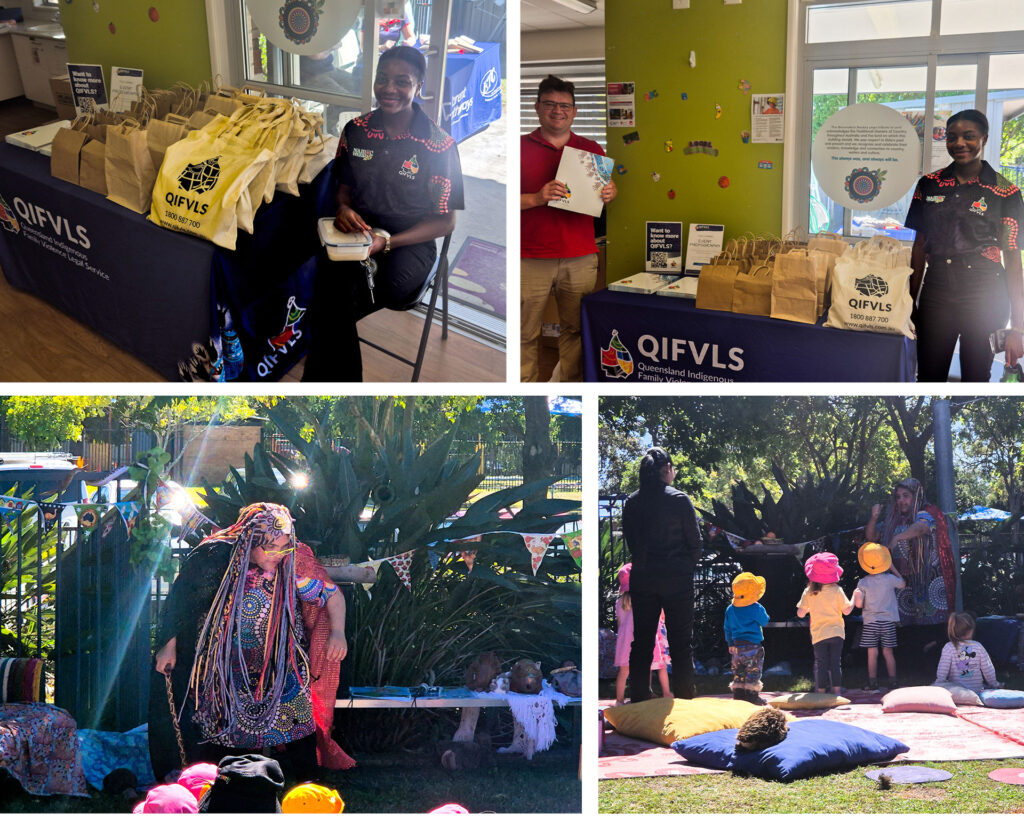


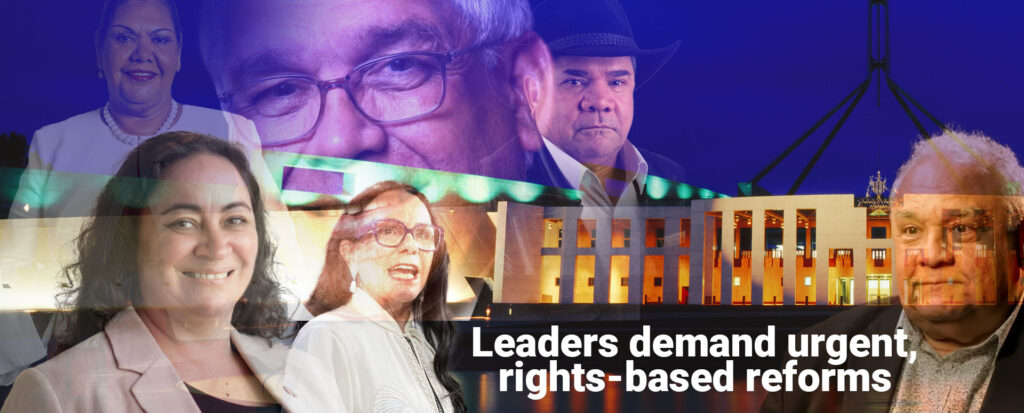
In a moment of deep significance, Aboriginal leaders from across public institutions and political life have come together to issue a joint statement, calling on the Australian Government to act now on long-standing commitments to First Peoples.
The statement marks the 18th anniversary of the United Nations (UN) Declaration on the Rights of Indigenous Peoples (UNDRIP) being adopted by the UN General Assembly and 16 years since Australia formally adopted the Declaration.
Social Justice Commissioner Katie Kiss, alongside former Commissioners Mick Dodson AM, Tom Calma AO, Mick Gooda and June Oscar AO, and former Federal politicians the Hon. Ken Wyatt, Linda Burney and Patrick Dodson, are urging the Australian Government to deliver on Closing the Gap targets and commit to urgent, rights-based reforms.
‘We call on the Albanese Government to respond by 22 November 2025 to the report of the Joint Standing Committee on Aboriginal and Torres Strait Islander Affairs inquiry into UNDRIP,’ the leaders said.
November will mark 2 years since the Committee released its final report, following a 12-month inquiry.
‘We call on the Government to fully endorse its 6 recommendations,’ they said. ‘These provide a roadmap to improving the recognition of rights of Aboriginal and Torres Strait Islander Peoples and to commit to partnership and dialogue. This includes by:
- developing a National Action Plan to implement the UNDRIP in Australia, in partnership with First Peoples communities
- amending legislation to formally include the UNDRIP in Australian law
- establishing an independent truth-telling and treaty process.
‘It has been 16 years since Australia endorsed the UNDRIP, which stands as the most powerful tool to guide change in law, policy, and outcomes for Indigenous Peoples around the world. Yet, here in Australia we are still waiting for meaningful action to close the gap between rhetoric and reality.
‘Each gap in the Closing the Gap framework reflects the impact of injustice and unmet human rights. While progress is being made on some targets, only 4 are currently on track. That tells us the pace of change is not satisfactory.
‘Until governments are held accountable for upholding our rights, the gaps will not close. The cost of delay is devastating: loss of lives, families, culture, languages and opportunities.
‘We also call for urgent reforms to address long term failures in our criminal justice and child justice systems by:
- incorporating the United Nations Convention on the Rights of the Child into Australian law, including by legislating national standards for children in justice and corrections systems and raising the age of criminal responsibility (currently 10 years’ old under federal law)
- establishing ongoing and independent monitoring and reporting on the implementation of the recommendations of the Royal Commission into Aboriginal Deaths in Custody (1991).
- exploring options for the establishment of an independent statutory authority to investigate Indigenous deaths and critical incidents in custody.
‘This is about justice. It is about lives. It is about holding governments accountable to the promises they have made. It is unacceptable that issues that were identified in the Royal Commission in 1991 remain unaddressed. Governments must act to prevent unnecessary contact with the criminal justice system – and above all, to stop preventable deaths in custody.
‘Every year without action entrenches injustice. Commitments by state, territory, and federal governments are on paper. Now they must be delivered.’
This article first appeared on the Australian Human Rights website.

Our podcasts now have a name, Blackchat! In this month’s episode our CEO Wynetta Dewis yarns to QIFVLS Chair, Adrian Geary about men stepping up as agents of change in addressing domestic and family violence.
Check out the 45 minute video by clicking on the link below.

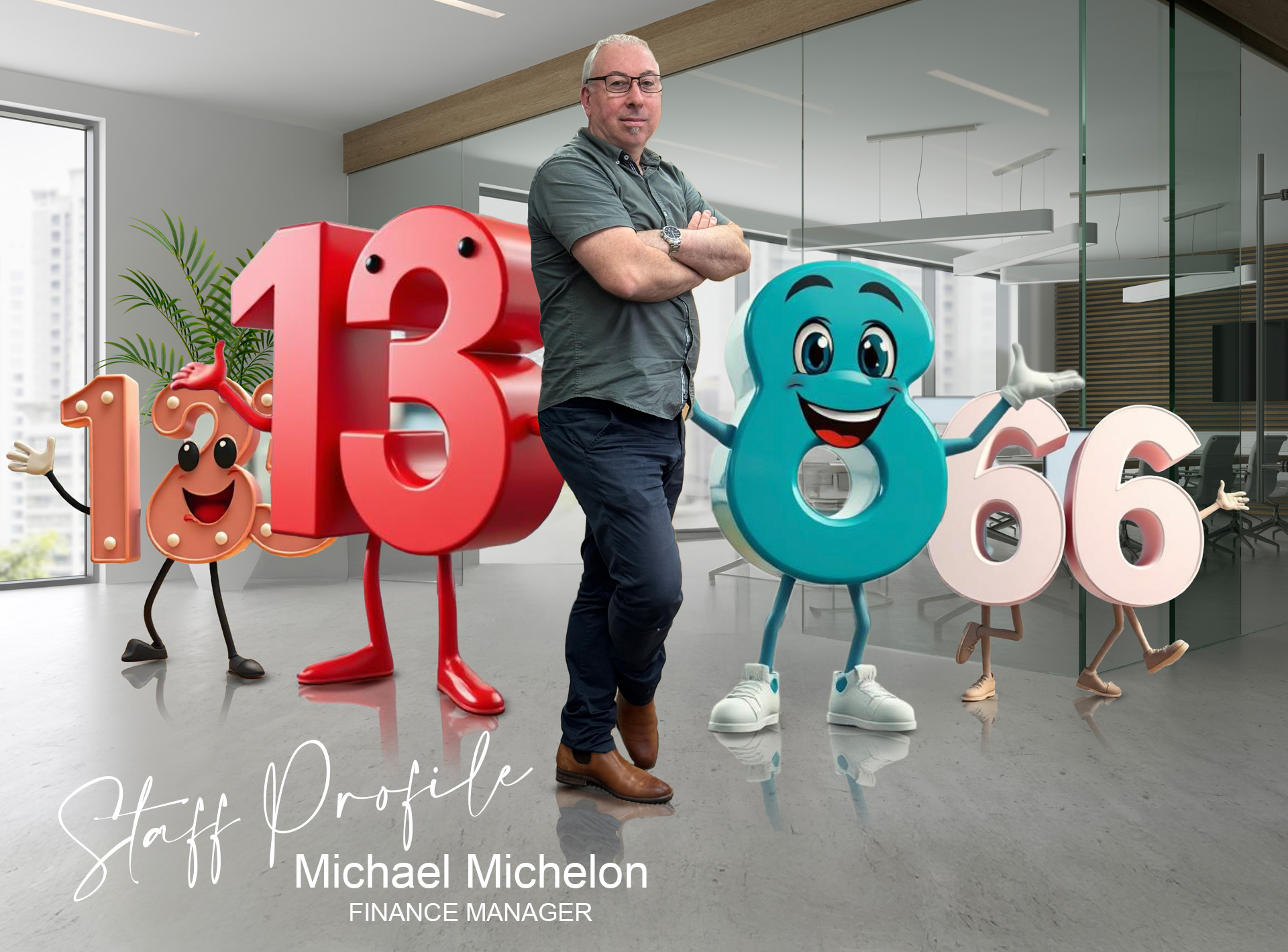
Working with numbers
OCM: Michael, may we just start as we always do, with you just telling us a little bit where you were born and raised?
MM: I was born in Woodville South, at the Queen Elizabeth Hospital in Adelaide and lived in the western suburbs, in a suburb called Beverley. I went to Kilkenny primary school, which I really enjoyed. I was pretty popular probably because I was fairly good at sport, whether it was athletics or swimming. Then I moved on to Woodville High School, which wasn’t so enjoyable – coming from the top of the tree to the to the bottom of the pile, but made some good mates pretty quickly.
OCM: What do you recall as being your favourite subjects at school?
MM: I was probably more keen on playing sport than doing school work but in saying that, while I was an average student, I actually did a lot better towards the senior years, particularly in Year 11, when realised that I needed to knuckle down. Favorite subjects in Year 11? Maths was one of them, because we had an excellent teacher, Miss Ey, and science – again because we had an excellent teacher. I did accounting in Year 12 as part of going to uni, but to be honest, I really didn’t enjoy it then, probably because I’d managed to get a car and a part time job, and that was way more interesting than studying.
OCM: Tell us a bit about your family and your early years at home.
MM: My father is Italian, my mother’s Polish, and they both immigrated to Australia in the early 1960s. They met in Perth, and then moved to Adelaide for work. My mother was nursing at the time. My father didn’t really have a trade, he was doing factory work in those early years. They had four children: me, then twin daughters and then another girl.
We grew up in a pretty quiet suburb. My parents didn’t have a lot of money so we only had a house with three bedrooms for the six of us. My sisters had to share a room but I was lucky enough to have my own room because, I guess, I was the eldest and a boy.
OCM: Would say your European parents were strict with you?
MM: Absolutely so. My mother was the matriarch of the family. She was a very short but very strong Polish woman who ruled with an iron fist. My father, I would say, is probably not typically Italian. He was a bit more reserved than you’d expect of stereotypical Italian male.
OCM: You grew up in quite a culturally rich household though, with all those European traditions and food.
MM: We were very well fed as children. Three meals a day, sometimes a big lunch and a big dinner. Polish influenced food of course, which I really enjoyed. Dishes like pierogi, which is basically a dumpling filled with meat or vegetables, with sauerkraut and onions. You can boil in water or fry it, or both and have sauces on top, like sour cream and bacon.
OCM: We know you’re a bit of a foodie. Do you think that influenced your interest in food?
MM: Potentially. When I left home, I lived for a little while with a Croatian flatmate and her mum, who was lovely, taught me a bit about cooking.
OCM: What would you say was the most formative thing that you learned from your parents?
MM: Probably work ethic. My parents always worked hard for what they had. They were blue collar workers. My father worked shift work and my mother had many different part time jobs to keep the household running and food on the table. So that’s what I appreciate from my parents, and as soon as I actually got a job and a pay packet I realised that in order to earn a good living, you need to be motivated and to work hard.
OCM: You touched on this a little earlier, but with your interest in sport, what were you playing in those early years?
MM: I played club soccer pretty much throughout primary and as a junior in high school, then I took up tennis. After school, played social basketball with my schoolmates, golf and amateur AFL for a few years with a club called Ethelton in the Port Adelaide area, which no longer exists since it was taken over by the Port Adelaide Magpies. And then when I moved down to the south of Adelaide, I played for Flagstaff Hill.
MM: I was in my 20’s with my first wife and my first child and we’d bought a house down that way. We had two daughters Olivia, who is now 33 and Michaela, who is 24.
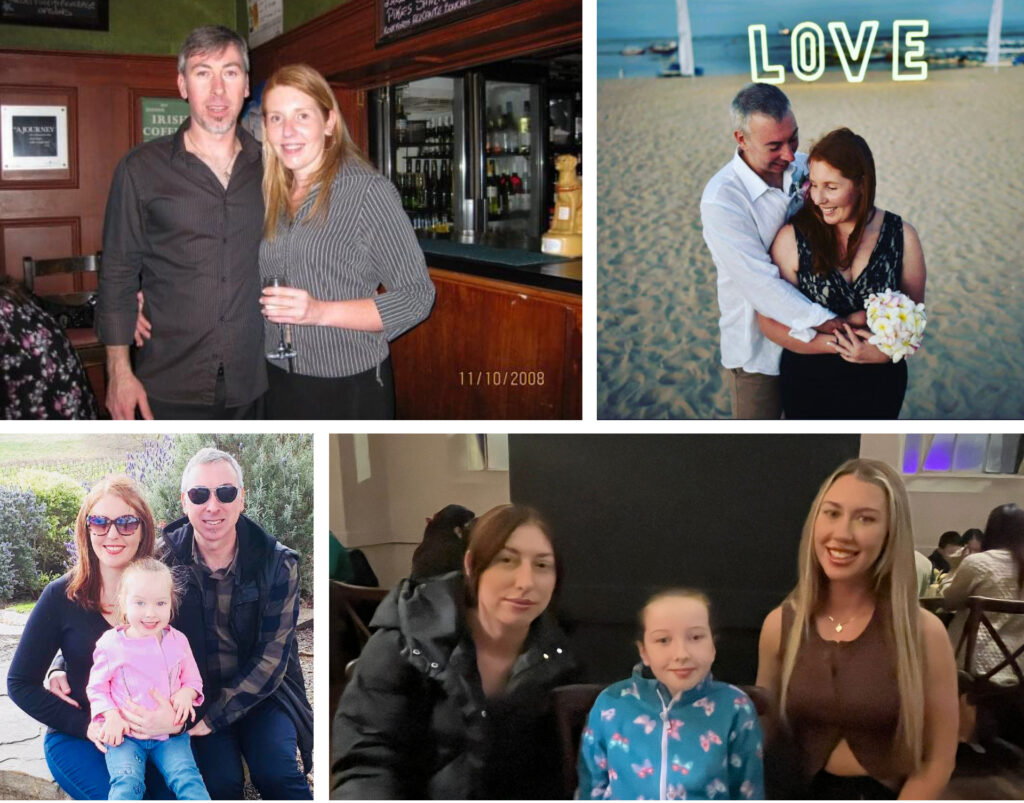
OCM: How did you start on your career?
MM: After I finished Year 12, I actually went back to school to get some more points to go to uni, because at that time the course was pretty popular and you needed quite a high score to get in. Unfortunately it was during this time that I had a pretty bad car accident which wrote off my vehicle – it was purely an accident, there was no alcohol involved.
That accident meant I had to get a job to finish paying off the vehicle, and I ended up starting at a fertilizer manufacturer in Port Adelaide, called Adelaide and Wallaroo, where I worked for six months in the factory before being interviewed for a costing clerk position there in head office. So, I guess you could say that I started my career making poo!
I was lucky back then – I had really good mentors, senior accountants and other finance professionals around me who taught me a lot and encouraged me to study. At that time, I didn’t want to study full time so I went to TAFE. It took me about 10 years to get my Advanced Diploma in Accountancy.
I learned so much during that time and my career really progressed from there as I moved into more senior roles across different sectors. I worked in manufacturing, travel and tourism, not-for-profit, health, electronics, manufacturing, warehousing and distribution – all sorts of industries.
That included working for Berri Corporation, which was a big step in in my career as well as a big pay increase. Over the years I’ve moved up to more senior executive levels. To be honest, not having a degree never really became a barrier. I found that the companies that thought you definitely needed a degree to do the role, but gave me an opportunity anyway, quickly realised that I was more than capable. I’ve also had a pretty good relationship with my senior supervisors, whether they were finance professionals or CEOs.
In the many years employed I’d been employed in the private sector my accountant friends had often encouraged me to try to get a job in one of the hospital networks in Adelaide. It was quite difficult to get in but I was lucky enough to get a job in 2013 and was there for about eight to 10 years.
OCM: You were with your second wife Desiree by then?
MM: Yes, we’ve been together almost 18 years, and married for 10 next year. We actually got married in Bali in 2016 after I arranged a surprise wedding. I’d booked us a holiday to Bali together with some close friends, and contacted a wedding planner over there who arranged the ceremony and reception. Desiree didn’t suspect a thing and when we arrived at the ‘dinner venue’ Desi commented, “Oh, it looks like someone is getting married here today” to which I replied, “Yes, it’s actually you and I “. It’s safe to say her face was priceless and there were a lot of happy tears. Luckily for me she agreed!
While I was still working at the Royal Adelaide Hospital Desi and I moved to the Barossa Valley. We like our wine and just decided one day, why don’t we live in the Barossa? Our daughter, Danielle, was pretty still young at that stage. She was only in Year One, so we made the move and never regretted it. Fresh air, no traffic, great lifestyle, surrounded by wineries and cellar doors.
Eventually I took up a position at another local health network which manages the Claire hospital in the beautiful Claire Valley, north of the Barossa.
The long travelling times to Claire became pretty tiresome though, so I took a job in aged care as a finance and admin manager with a small regional not-for-profit aged care facility. I really enjoyed it, it was at a time of great legislative change and reform in aged care, with a new funding model that needed to be implemented. Plus I had a really good relationship with the CEO and together we managed to turn the facility around.
OCM: You’ve mentioned previously that following a management change there that you decided it was time for a fresh start.
MM: Yes. Desi’s father had also just passed away so the timing felt right to get out of Adelaide. I asked Desi if she minded me applying for positions all over Australia, which I did. QIFVLS was one opening that I looked at that was quite similar terms of being a not-for-profit organisation, supporting a community. I’d never worked for an Indigenous corporation before, which also interested me.
I actually had two job offers. One was with QIFVLS and another was in north west Tasmania for a local regional health service. I wasn’t really sure what to do. I’d been up to Cairns many times for holidays, so we decided to go to Tasmania to meet with the other organisation and just have a bit of a holiday in the area. It was lovely but freezing cold – and my wife hates the cold. The area was pretty remote as well. There didn’t seem to be very many opportunities for housing or schooling either. So we decided to try Cairns and haven’t looked back.
OCM: What do you like about living in this city and in this part of the world?
MM: I like it for many reasons. It feels like you’re on holiday, and easy access to all the regions; the Great Barrier Reef, the Daintree, the Tablelands.
I think the weather, particularly over the non-summer months, is lovely and suits us. There’s more of a more relaxed lifestyle here, and the people seem to be really nice. No one seems to be in a rush. Also, I think cost of living is a bit less compared to a major city, which is a bonus.
OCM: What would you say is the most satisfying thing about your work with QIFVLS?
MM: The most satisfying thing is that, even though I don’t work directly in the service delivery space, I see my role as pretty important in supporting those teams to make sure that they have all the support they need to deliver a really important service.
I’ve worked in lots of different corporate environments and I’ve come to the realisation that I much prefer working in a community-based organisation.
OCM: What do you do during your time off and over weekends.
MM: So for Desi and I, our time is mainly spent following around our 10 year old. But we enjoy going out for dinner pretty much every weekend,
We also enjoy going for drives and going away for weekends. We’ve been camping and have done some of the touristy things as well, like snorkelling on Green Island and doing Skyrail.
I also enjoy golf and am a big Carlton Football Club fan and member, however frustrating that may be sometimes. That’s sort of balanced out though with the other team I support, the Liverpool Football Club which are the current English Premier League champions.
OCM: Thanks Michael.



When an individual or organisation makes a tax deductible donation to QIFVLS, they can be confident that their funds are going towards making a tangible difference to the safety and welfare of Aboriginal and Torres Strait Islander people experiencing or at risk of domestic and family violence.
Our team are grateful for all donations that help our not-for-profit organisation to continue offering this critical service. Donations of $1,000 or more help fund outreach services to some of Queensland’s most remote ATSI communities.


Are you in search of a rewarding profession that will take you on journeys through the breathtaking landscapes of Queensland? One that promises not only career advancement and skill enhancement, but also attractive perks, substantial travel allowances, and one-of-a-kind professional adventures? Are you drawn to a career that enables you to make a positive difference in the lives of others?
Look no further – your new career awaits you! At QIFVLS, we are dedicated to combating Family and Domestic Violence within Aboriginal and Torres Strait Islander Communities. Our methods encompass education, advocacy, legal reform, court support, and casework assistance. By focusing on early intervention and prevention, our aim is to empower individuals impacted by Family Violence to regain control over their lives. We are in search of outstanding and dynamic individuals who can join us in achieving this mission.
If you envision yourself fitting into this scenario, we encourage you to see what’s available here.
Lorem ipsum dolor sit amet, consectetur adipiscing elit. Ut elit tellus, luctus nec ullamcorper mattis, pulvinar dapibus leo.


